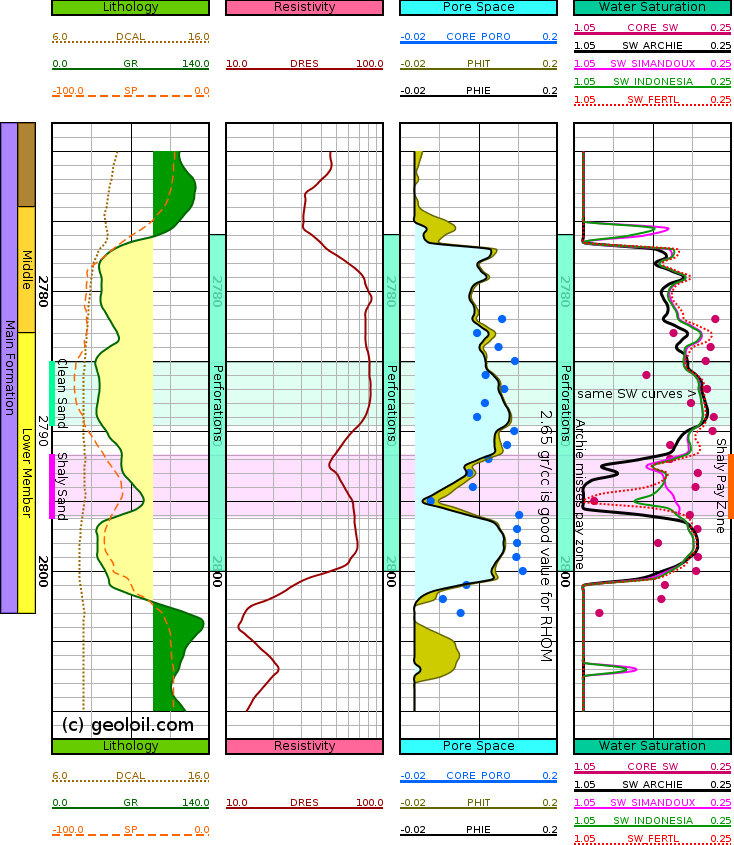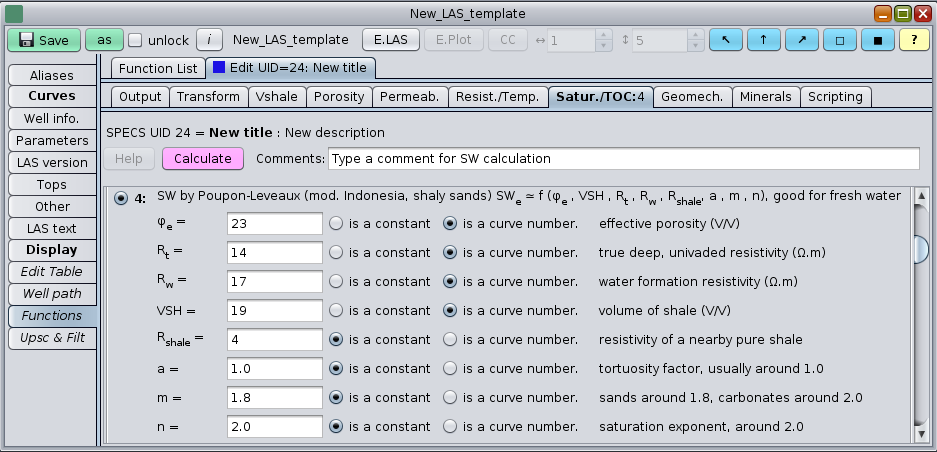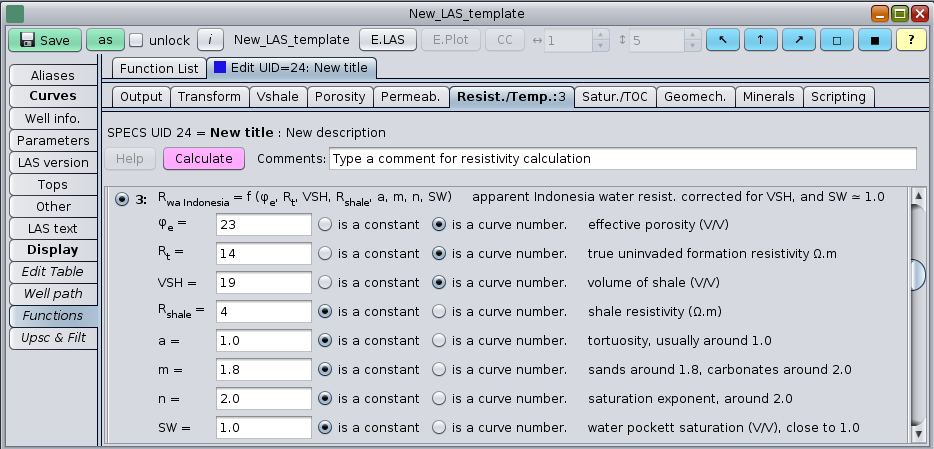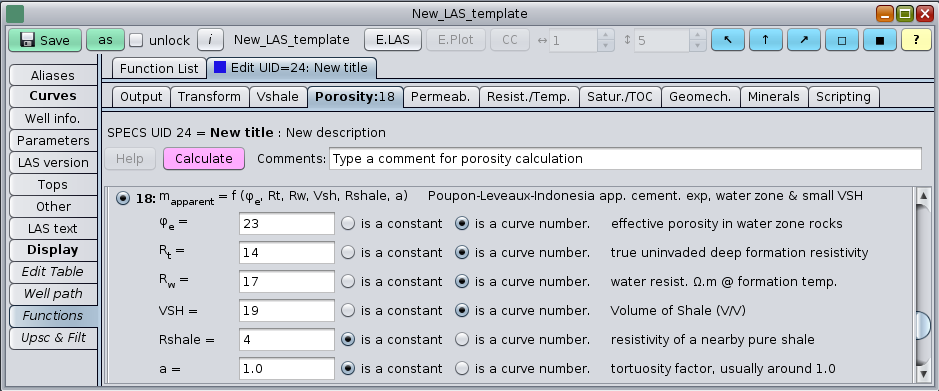
|
 Downloads
Downloads
|
 Prices
Prices
|
 Videos
Videos
|
GeolOil - The Indonesia Poupon-Leveaux Water Saturation Equation
The Indonesia water saturation equation by Poupon-Leveaux (1971), is one of best models to estimate SW in shaly rocks (VSH > 0). It usually behaves better than the Simandoux equation on fresh formation waters with salinities of 20,000 NaCl PPM or less for clastic environments. The Indonesia model is a closed mathematical formula easy to apply, that uses the regular parameters, a tortuosity, m porosity cementation exponent, and n water saturation exponent (no Cation Exchange Capacity data CEC is needed):

Besides correcting SW for higher matrix conductivities due to the clay minerals presence, (avoids too large water saturations like Archie, that may overlook pay zones), its closed mathematical expression has interesting properties:
- It reduces to the general Archie water saturation equation when VSH=0
-
Its mathematically treatability allows to estimate an apparent formation water resistivity
that incorporates a correction for shaliness (VSH > 0). If the cementation exponent m
is approximately known, Rw = Rwapp solves to:

Notice that a solved, closed formula like this can not be found by using the Simandoux equation (it would require numerical analysis iterations). However, a similar closed expression is easily found by solving the Fertl water saturation on the same conditions. (See the last equation on the article of pay index.)
The Rwapp equation is a powerful tool to estimate the formation water salinity from log data in a reservoir. Find a water zone, like an aquifer or even a water pocket, apply SW≅1 in the equation to findRw=Rwapp , and convert it to an equivalent NaCl salinity using the borehole zone depth temperature. -
If the formation water salinity is approximately known, a Rw curve can be calculated for the borehole
temperature. Then, an apparent cementation exponent m can be estimated in water zones (SW=1) by:

Again, a closed mathematical equation like this can not be found using the Simandoux equation (but can be found using the Fertl equation).
The Indonesia equation may be tried as the default SW estimator for shaly reservoirs with fresh to brackish waters, and probably would benchmark better than the Simandoux equation when compared against reliable core laboratory data.

Comparing the results of Archie, Simandoux, Indonesia, and Fertl models, against core SW data.

The GeolOil panel to compute water saturation using the Indonesia equation

The GeolOil panel to estimate the apparent water resistivity from the Indonesia model, corrected for VSH

The GeolOil panel to estimate the apparent cementation exponent m from the Indonesia model, corrected for VSH
 GeolOil is listed by the official
SPWLA software directory
GeolOil is listed by the official
SPWLA software directory
| |



|
|
|
© 2012-2026 GeolOil LLC. Please link or refer us under Creative Commons License CC-by-ND |




 TRAINING
TRAINING

 PAPERS
PAPERS
 REFERENCES
REFERENCES
 GET IN TOUCH
GET IN TOUCH


